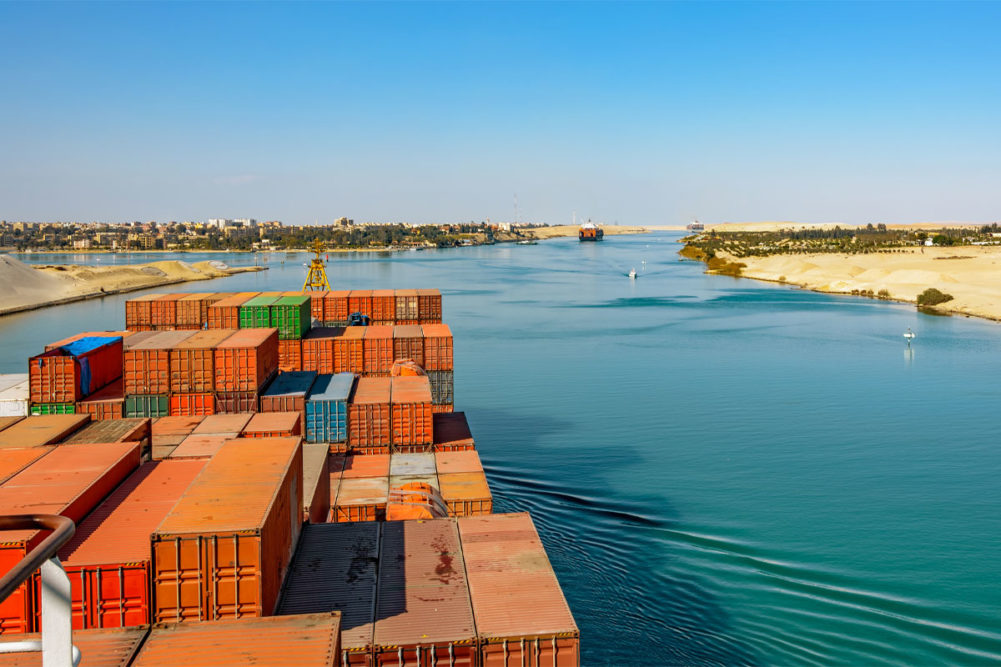CHARLOTTE, NC. — Shipping disruptions, brought on by militia attacks in the Red Sea and drought problems in the Panama Canal, will impact American food and beverage companies negatively in both exports and imports, according to a Jan. 31 industry overview report from BofA Global Research.
Companies sourcing from Asia facing the greatest risks from shipping disruptions include Keurig Dr Pepper for brewers from Asia and McCormick & Co. for spices from India and Indonesia, the report said. Protein companies, including Tyson Foods Inc., Hormel Foods Corp., and Pilgrim’s Pride Corp., who export to Asia, may be impacted adversely, too, as could Latin American protein companies such as JBS, Marfrig and Minerva Foods.
Sovos Brands, which the Campbell Soup Co. is in the process of acquiring, also may see shipping delays since it imports its Rao’s Homemade sauce products from Italy through the Mediterranean Sea to the United States, according to the report.
After Houthi militia began attacking commercial ships in the Red Sea last November, some vessels started taking longer, more costly routes around the southern tip of Africa at the Cape of Good Hope, according to a US Energy Information Administration (EIA) report published Feb. 1.
Some oil and natural gas companies are avoiding the Red Sea, according to the EIA. However, a typical voyage from the Persian Gulf to the Amsterdam-Rotterdam-Antwerp petroleum trading hub via the Suez Canal takes 19 days while the Cape of Good Hope route takes nearly 35 days.
The shipping issue in the Red Sea differs from the issue during COVID-19 in which a demand problem led to a scarcity of containers, according to BofA Global Research. There are enough containers now, but they are moving slower. Ships and containers appear to be more detoured than canceled.
The problem will adversely impact the first quarter of the fiscal year for Amsterdam-based Corbion, Olivier Rigaud, chief executive officer, said in a Jan. 31 capital market update.
“In fact, we have some traffic over the Red Sea, and suddenly you have a surcharge on the containers that go through the Red Sea,” he said.
Ships carrying products from the US Gulf Coast to Asia typically pass through the Panama Canal on a trip that lasts nearly a month, according to the EIA. Now, more Very Large Gas Carriers, which primarily carry propane and butane, are going around the Cape of Good Hope, which adds about 21 days.


